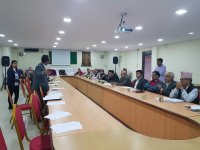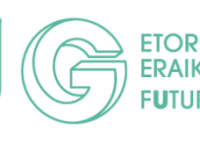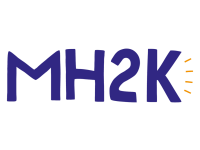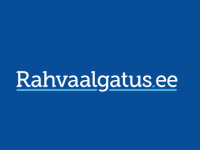Learning from the challenges of 2015 Nepal Earthquake where geo-spatial data was at a premium, Kathmandu Living Labs implemented a project that created a robust geo-spatial database for the entire Pokhara Lekhnath Metropolitan City. The ownership of this dataset was passed to the local government. The project opened the door for open mapping to be adopted by the government, engaged local citizens to map their neighbourhoods and encouraged local government to make use of spatial data.
Innovation Tag: Citizen Engagement
The Provincial Council of Gipuzkoa presents the program entitled Etorkizuna Eraikiz (Building the Future) as an innovative program for a more open and collaborative governance. Etorkizuna Eraikiz incorporates public deliberation with the citizenship for the design of public policies, ensuring the effectiveness, efficiency and plurality of this participation. The program consists of an active experimentation exercise to develop the future of the territory.
The Government of Argentina is implementing transparency, participation and accountability in the judiciary through two flagship initiatives from the Ministry of Justice: Open Justice and Justice 2020. Open Justice is an open data portal, and Justice 2020 is a civic engagement platform. Through these initiatives, the government is seeking to improve the relationship between society and the justice sector as well as justice service delivery.
Case Study
CityScope FindingPlaces: HCI Platform for Public Participation in Refugees’ Accommodation Process

In reaction to the sudden arrival of tens of thousands of refugees to the city of Hamburg (DE), MIT and Hafen City University's City Science Lab created a public participation and decision-making process for refugee accommodation in Hamburg neighbourhoods. 'CityScope FindingPlaces', an Human Computer Interaction platform, was designed and deployed to facilitate dozens of community meetings with ~500 participants, resulting with 160 locations accepted by Hamburg’s citizens to be developed for…
SmartStart was the first cross-agency online life event service in New Zealand. SmartStart makes it easier for New Zealanders to access information and services around the birth of a child.
New Zealanders can:
1) learn about having a child;
2) navigate government services;
3) access and engage with services; and
4) consent to reuse information provided to one agency with another agency.
City of Things initiative is an open innovation environment where different actors are gathered within a unique innovation infrastructure and research service in which new technologies (with a focus on Internet Of Things) are being explored, shaped and tested in a citywide living lab setting. Hundreds of smart sensors and wireless gateways positioned at carefully selected locations across streets and buildings will transform the city of Antwerp into a true living lab for the IoT.
Decidim est une plateforme numérique imaginée par la mairie de Barcelone dès 2016 pour créer et coordonner des espaces et des processus participatifs, qui vise à étendre et faciliter l’accès à la participation citoyenne en vue de la co-construction et de la co-production des politiques publiques. Il s’agit d’un projet européen open source : son code est ouvert et libre ; en d’autres termes, tout le monde peut le voir, l’utiliser, le copier ou l’enrichir.
Mental health issues affect about 1 in 10 young people in the UK. MH:2K gives young people a leadership role in solving this most important of challenges. It empowers 14-25 years old to identify the mental health issues they see as most important, engage their peers in exploring these topics, and work with decision-makers to make recommendations for change.
The platform, Rahvaalgatus.ee is digital infrastructure that enforces the new civic right to address the Parliament of Estonia with collective proposals by citizens. The open-source platform enables to first discuss upon a relevant topic, then co-create the proposal, gather digital signatures to it, send the proposal to the parliament, and get updates on the process in the parliament.
The Ministry of Economic Development and the National Clearing House implemented a program to promote cashless payments in public administration. Our goal is to develop a model for acceptance of non-cash payments using point of sale (POS) terminals and enable the use of virtual terminal (WebPOS Paybynet) in public sector, which is free for both the administration and the citizens.




